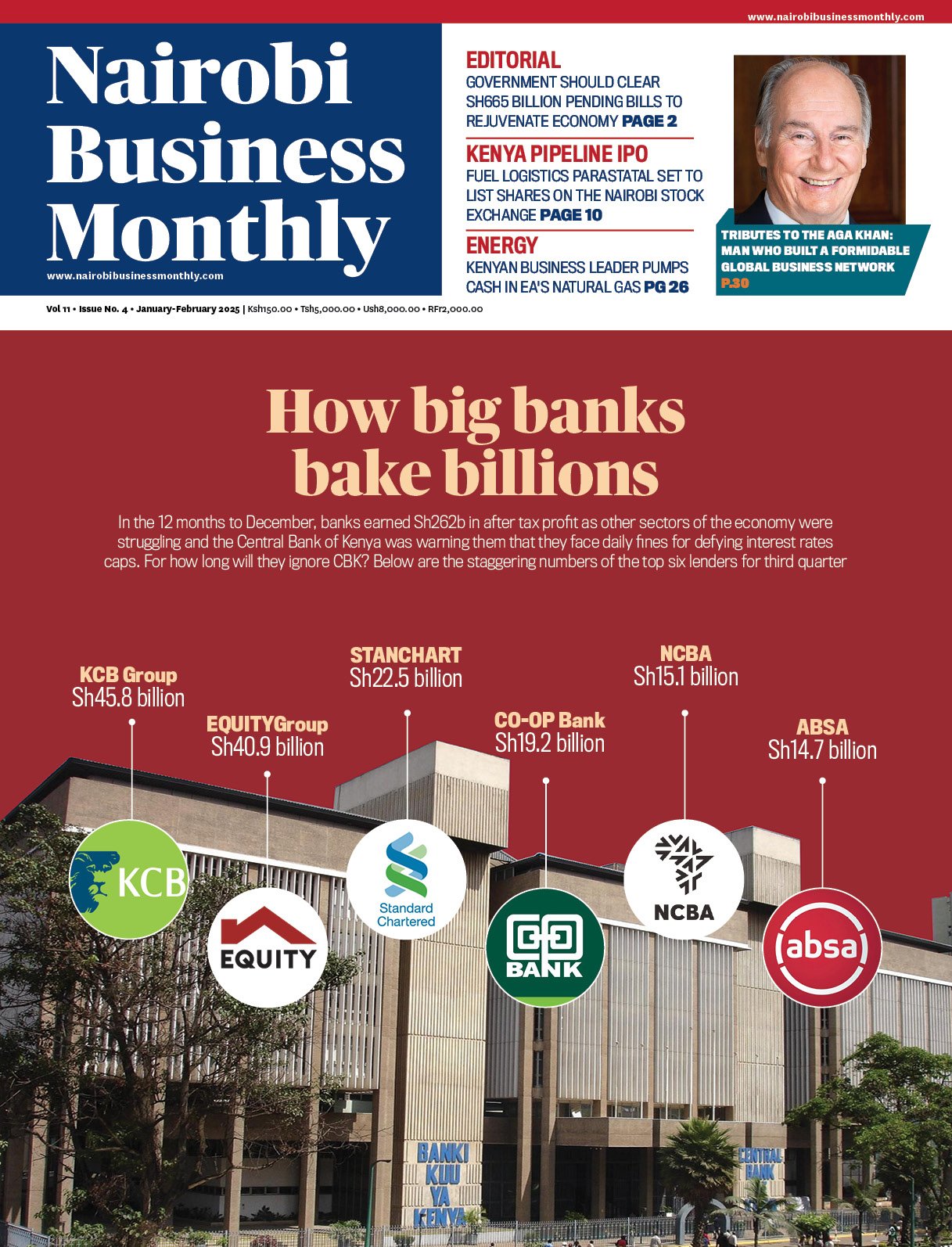Maintenance fee will choke the remaining life out of an already ailing stock market
BY ADAN MOHAMED
On May 17, the Central Depository and Settlement (CDSE) Corporation Limited sent out emails to existing account holders informing them of the introduction of a Sh100 monthly maintenance fee payable annually. The move kicked up a mass displeasure among stakeholders. No wonder it has been shelved pending further deliberations between the corporation and the Capital Markets Authority.
The corporation’s core business is to maintain a central depository system that clears and settles transactions involving publicly traded securities. The corporation has been involved in developing the market by bringing in T+1 trading and making Securities Lending and Borrowing (SLB) a reality.
It is at the back of this that it is one of the institutions that makes share trading and bond trading possible. When investors buy and sell shares at the NSE, it is the CDSE’s job to effect the transfers of those shares from entity A to B, B to A and so on and so forth.
CDSE, as always, charges a transaction fee of 0.08% against the traded amount. These transaction levies happen to form the bulk source of its revenue. An active market with large trading volumes would therefore favour the CDSE’s business model, as more trades would mean more transaction fees.
However, in recent years the trading volumes at the NSE have not been all too impressive and neither has the CDSE topline. The recent introduction of the maintenance fee should therefore have been expected as it is only natural for directors of an underperforming corporation to desperately look for alternative revenue channels to quell shareholder concerns.
Revenue from maintenance fees would be expected to be north of Sh1.5 billion given the number of account holders. This would increase the corporation’s revenues by a factor of 5 and effectively solve the corporation’s perceived financial problems. And that is as far as the positives for the move go.
For the last few decades, the bulk of trading at the NSE is done by foreign investors, raising concerns about the future of trading. On any given day, foreign investors can easily contribute north of 60% to 70% of the trading at the NSE. Locals take up the remaining portion. Terrible precedence, yet one of the roles of both the NSE and the Capital Markets Authority (CMA) is to promote financial inclusion, which, ideally, should start with the locals.
In the past, trading was for big institutions and a few (older) working class individuals, but today, start ups, and (a few) young people are shaping the future of the markets.
Analogies have long been drawn between gambling and stock market trading – gambling is popular among Kenyan youth. From a policy standpoint, it would be prudent for institutions such as the NSE and CMA to turn the attention of young people from the destructive gambling habits to the more productive stock market investing. And the introduction of the Sh1200 annual maintenance fees is not one of the ways to incorporate young people into the mix.
Share trading is an activity that if marketed properly to the youth, has a lot of potential as far as uptake is concerned. Young people are more sensitive to transaction costs and monthly fees.
If a student invests a total of Sh10,000 in the stock market. Assuming the value of the portfolio remains constant (which in the NSE would be an achievement in itself given the recent negative performance), it would mean that by the end of that financial year, that student would have lost more than 10% of their portfolio value due to the maintenance fee.
To maintain the portfolio value, a return of 10% is enough to justify the cost of trading and investing. Since a 10% return is an unlikely achievement, why should such a student bother to invest in the NSE?
It is in the interest of the NSE and CMA to increase local investor trading at the NSE as that would mean more financial inclusion and the development of a deeper and more robust financial market. A maintenance fee will barely affect foreign investors, or institutional investors, but will significantly discourage market participation especially from the youth.


